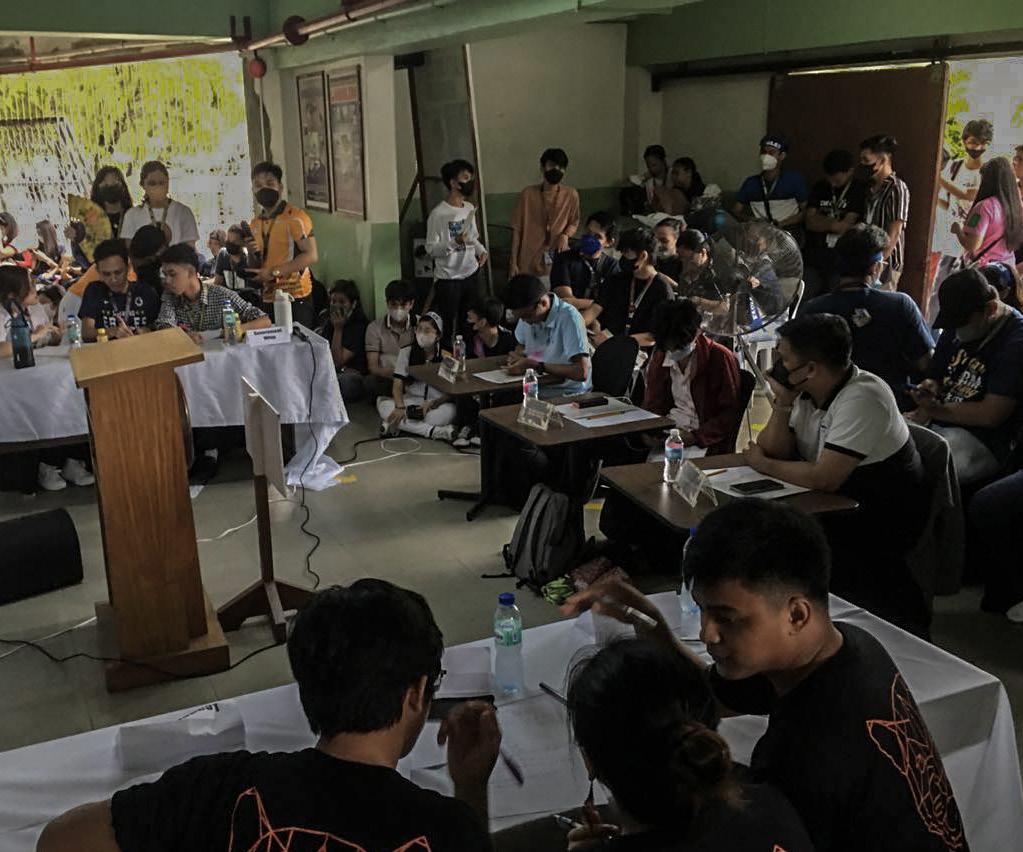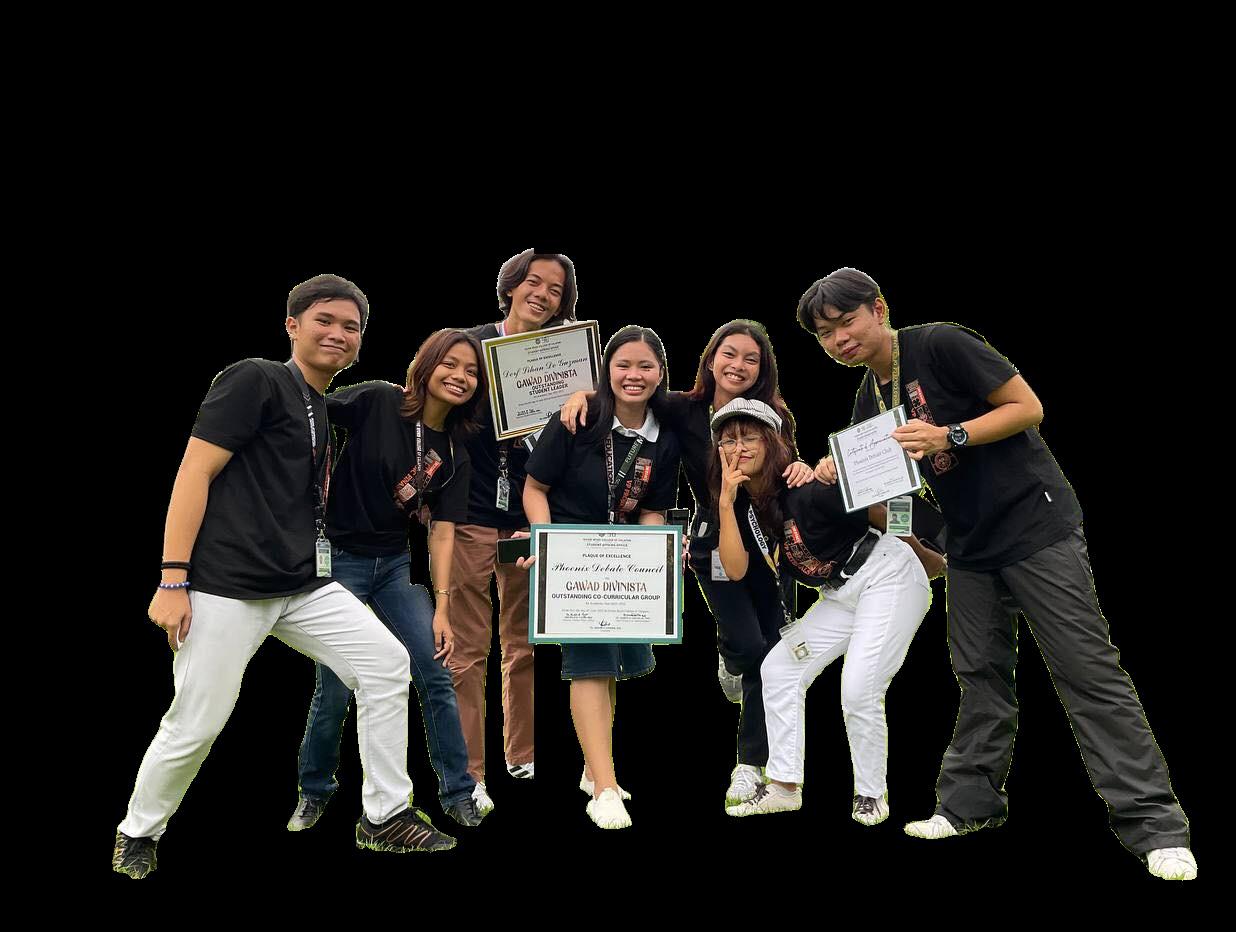
3 minute read
Hear, here! : The Rise of PH Debate
Debate –posh and clear-cut, sounds like a foreign concept that some Filipino students may fear to dabble in. The truth is that there is no such distinction; no figure is above any and all student-communities to partake and witness structured debate tournaments [specifically Asian to British Parliamentary forms]. It’s a match strike –deceivingly small but a steadfast force – that with enough passionate fuel, welcomed conditions, and consistent progress will take the Philippines to greater heights.
Ateneo de Manila University students, David Africa and Tobi Leung, made multiple headlines in various newspage outlets, and amazed netizens on Facebook, Twitter, and other social media, by delivering the first historic win for the country at the World Universities Debating Championship in Madrid, Spain. To some, it is a newly-unlocked door for Filipinos to explore. Debating, however, is nothing new to the ears of the Filipino youth.
Advertisement
There have been multiple debate tournaments pre-pandemic such as the University of the Philippines Los Banos’ Southern Luzon Inter High School Debate Encounter and Oriental Mindoro’s Mahalta Cup. Multiple debate opportunities outside the academic curriculum, albeit such opportunities, are limited for higher education and aren’t as generous as it is to those in their secondary education. This should, however, never dampen the spirit of debate for college students.
Within Divine Word College of Calapan (DWCC), the past debate team was a passing name to other students, as there hadn’t been any conducted tournaments to introduce themselves to the institution. Rather, the debate culture in DWCC had been sleeping for years. Like waking up to a jolt of midnight resolve to change, this year’s debate team had a fresh re-branding: DWCC Debate Society to DWCC Phoenix Debate Council (PDC). Where in the past it was primarily led by students from the School of Liberal Arts, it now has welcomed students from other departments to participate and take part in executive roles.
In accord with the values held by the PDC, the culture of debate needed to be revived within the province of Oriental Mindoro, starting within the institution. The organization, lead by Derf Lihan de Guzman, aims to rekindle the flame for debating by actively advocating for social issues such as social liberalism and social justice. The PDC has conducted five face-to-face training sessions in which they discussed the following principles and topics:
The Basics of Public SpeakingParticipants were introduced to effective speech delivery techniques such as vocal projection, body language, and the art of captivating the audience.
Basic Principles of Arguing - Participants were taught how to formulate striking arguments, structure their speeches logically, and rebut opposing arguments by the other bench. To walk the talk, participants were exposed to mock debates and arguments analysis.
Cultivating Critical Thinking - Participants were encouraged to analyze complex issues, evaluate evidence, and articulate sound arguments.
Collaborative Learning - Participants were fostered within a collaborative learning environment to allow them to engage in meaningful discussions and enable them to share their insights.
To actualize their teaching, the PDC [represented by Derf Lihan de Guzman & Kim Lenard Eguiron] competed in their first online debate competition: The Philippine Science
Open, organized by the Flux Debate Society and Larynx Debate Society of the De La Salle Medical and Health Sciences Institute, last March 2023. PDC broke third in the Novice Category, and gloriously landed a spot in the semi-finals for the competition. They competed against over 60 teams from prestigious universities and institutions all over the Philippines.
The PDC has achieved and proven so much, just within their first year of reestablishment. Recognized by the DWCC as the Most Outstanding Co-Curricular Group for the academic year 2022 - 2023, this has just been a successful start in reviving a passion for the community.

Debate isn’t just limited to parliamentary debates and competitions; it also has room for unbound camaraderie and creativity for those willing to test its waters. Most notable of it all is that debate hones students to become critically-thinking and actively-participating citizens in any and all governmental processes. With the pride and recognition they give to the Philippine name, there is no reason to undermine the high potential debaters possess. After all, the Atenean debate duo is living proof.
Hear, here! Cheers to the Filipino debaters and for the brighter future of PH debate –whether in the DWCC campus or across the seven seas!










